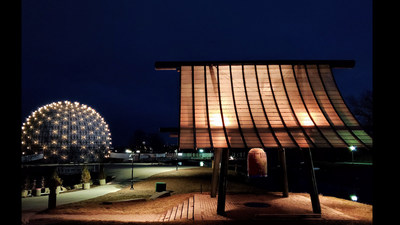Exiles in Our Own Country: Japanese Canadians in Ontario
TORONTO, April 1, 2022 /CNW/ - Japanese Canadian academics, community members and supporters gathered online and in-person at the University of Toronto for a Symposium on the Ethics of Research in Indigenous and Japanese Canadian Communities. Joined by scholars from the Indigenous and Chinese Canadian communities, a keynote address on Indigenous Research Methodologies by Dr. Margaret Kovach, of UBC led to a discussion that was brave and necessary.
The injustices endured by Japanese Canadians from 1942-1949 were an extreme manifestation of anti-Asian racism. Panelists considered ways universities and government funders can ensure that painful histories and stories told "about us" acknowledge and include our voices and research contributions. Issues of systemic racism in academia included tokenism, and treatment as "native informants" in collaborative research. The coopting of information provided by community knowledge keepers as the "discovery" of outside researchers was also a concern.
On April 1st last year, Toronto mayor John Tory said, "Students of history, as I once was, might pause and wonder why there is a Japanese Canadian Freedom Day celebrated in Canada on April 1st. And they might conclude that it was a special historical day in Japan itself. But a careful reading of Canadian history will tell you that April 1st, 1949, was the day when Canadian citizens of Japanese ancestry were allowed under the law, the freedom to live in a place of their own choosing."
B.C. politicians were the driving force behind racist laws which included denial of the vote until April 1st, 1949. The period of exile lasted longer than the internment and kept its former residents from returning to their homes. In 1941 there were 234 Japanese Canadians in Ontario and 22,000 in British Columbia. By 1951 the largest community was in Ontario with only 7,000 Japanese Canadians in British Columbia. This uprooted community gained allies in the 1940's like the Reverend James Findlay, MP Andrew Brewin, a young Hazel McCallion and the University of Toronto Student Union. When laws were enacted exiling 4000 Japanese Canadians, most Canadian born, to Japan, Arthur Roebuck, the Liberal MP for Toronto-Trinity stated that ". . . he could not face the minority groups in my own city . . . if I allowed this occasion to pass without making myself absolutely clear before this house and the country that, when it comes to racial discrimination against anybody, count me out."
Anti-Asian discriminatory legislation defined Asian lives in B.C. before World War Two. The post-war period in Ontario provided more fertile ground for the success of B.C. born Internment Camp survivors like Joy Kogawa, Raymond Moriyama, David Suzuki, and Irene Uchida, all exiled to Ontario.
Lynn Deutscher Kobayashi, President of the Greater Toronto Chapter of the National Association of Japanese Canadians says, "Our parents and grandparents' arrived in the East stripped of all possessions but fortified with dignity. Despite the obstacles, they founded Nipponia Home a Seniors Home in Beamsville in 1958. Then, five years later, the Japanese Canadian Cultural Centre and the Momiji Health Care Society in 1978. The first documented Japanese immigrant to Canada arrived in 1877. Ontarians of Japanese descent marked the Centennial with a gift to province of the Japanese Canadian Centennial Temple Bell at Ontario Place. I hope these stories of exile, activism and excellence receive the attention they deserve."
Ours To Tell: Ethics of Research in Indigenous and Japanese Canadian Communities held on March 25th, 2022, was sponsored by the Greater Toronto Chapter of the National Association of Japanese Canadians (NAJC), the Dr. David Chu Program in Asia-Pacific Studies, U of T, and the Canadian Race Relations Foundation. The NAJC was founded in Toronto in 1947. In 1988 the NAJC won Japanese Canadian Redress Agreement and Apology from the Federal Government. The Canadian Race Relations Foundation was one outcome of the historic Redress agreement.
Video of the City of Toronto Japanese Canadian Freedom Day Proclamation by Mayor Tory: http://www.torontonajc.ca/2021/04/02/mayor-tory-proclaims-april-1st-as-japanese-canadian-freedom-day-learn-why/
SOURCE Greater Toronto Chapter of the National Association of Japanese Canadians
News published on and distributed by:





